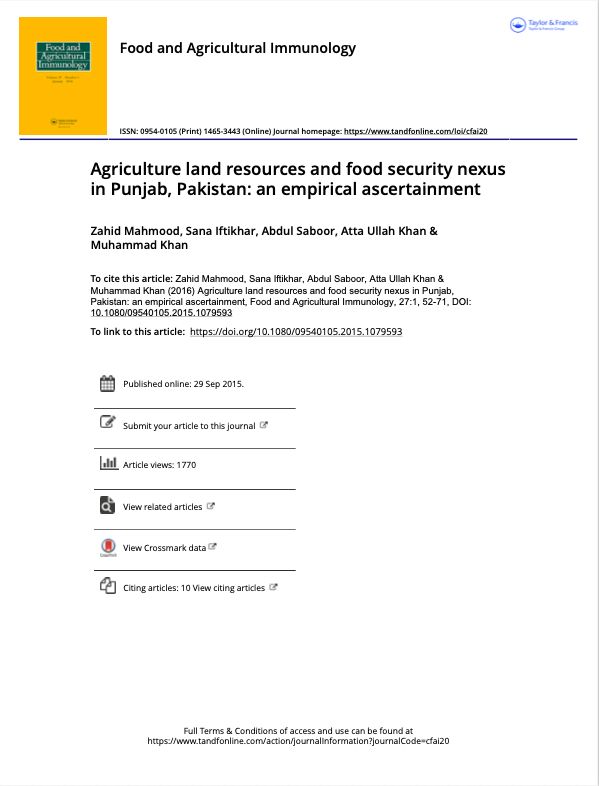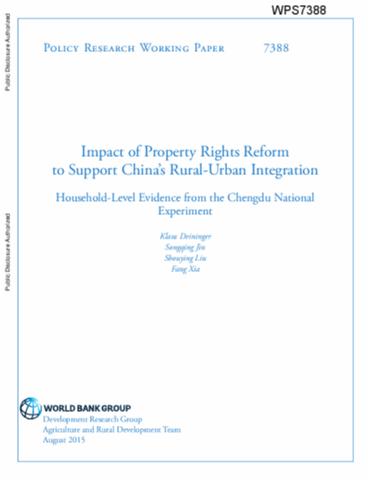Agriculture land resources and food security nexus in Punjab, Pakistan: an empirical ascertainment
Agriculture is the backbone of Pakistan’s economy. It employs 45% of the labor force, contributes 21.4% to the gross domestic product and provides food to more than 180 million people of the country. The required plethoric resources to produce food correspondingly protect the population against food insecurity. This study explores the distribution of land resources, their ranking and relationships with food security in all districts of Punjab province of Pakistan. The Gini Coefficient and multiple linear regression were employed.





